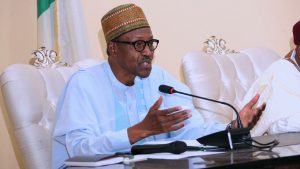The Federal Government has announced plans to ban the movement of certain cargo on restricted roads in the country, upon the completion of several railway projects.
The Minister of Transportation, Rotimi Amaechi revealed this in Lagos over the weekend.
The Future…‘Tar to Tracks’
The Transport Minister said it was necessary to transfer the road cargo to rail to reduce some of the weight from the roads and ensure that they last longer. He added that the movement of cargo by rail would be faster and time-saving for businesses.
He noted that “even though rail transportation is subsidized for passengers, it is unsure if a subsidy will be applied to cargo movement, to recoup the cost of the rail construction. He added saying “No matter what we charge, it will not be the same as what we charge you on goods.”

Amaechi further pointed out that it was the responsibility of the State Governments, not the Federal Government, to construct the inner roads in their states.
“When the FG does rail projects, it is the job of the state governments to do roads to (connect to) the different railway stations”, he said.
He, however, agreed that contractors could take on some few meters of roads out of the rail stations, but the rest should be done by the state governments.
Amaechi confirmed that the Lagos-Ibadan speed railway should be completed by April 2020, citing lack of cooperation from landowners, logistics delay in delivering the equipment from China, and theft as some of the reasons for the delay of the rail project. He also added that the railway tracks will be laid up to Moniya in Ibadan, Oyo State in a month.
He revealed that the Federal Government signed a $3.9 billion deal with China Railway Construction Company (CRCC) for the construction of the Abuja-Itakpe railway. The Public-Private Partnership delineates Nigeria bearing 15% of the cost, while CRCC handles 10%.

The Minister also informed that the Federal Government was investing in human capital development by training 150 Nigerians in rail construction in China. This is being done as a platform for Nigerians to take over railway construction in the next five to 10 years from the Chinese who currently control the industry. He added that the Federal Government plans to build railway institutions and bring English-speaking Chinese to teach at the institutions.
Advancing the Rail Transport System
Enhancing the rail system, the government said it is determined to ensure the provision of efficient and affordable transportation that would serve as the backbone to the economic and industrial development of the various sectors given the viable alternative it offers to road transport.

Certainly, the rails provide a viable alternative to road transportation as it connects one city to another. Acknowledging the significance of this neglected sector, President Muhammadu Buhari on assumption of office in 2015 had given premium to the rail transport system, especially to reduce the burden on the roads.
Running with the vision, the Minister of Transport, ChibuikeAmaechi, has kept the flames burning right from his first tenure as minister and his recent return for a second term heading the ministry. The doggedness and passion of the minister have seen rail development taken to a higher level.
Nigeria’s rail system consists of 3,505 km of 3 ft 6 in (1,067 mm) gauge lines and 507 km of standard gauge lines.
The Nigerian railways were originally built by the colonial power, Great Britain. The railways were built to the 3 ft 6 in (1,067 mm) Cape gauge, the same track gauge used in most other British colonies in Africa.
